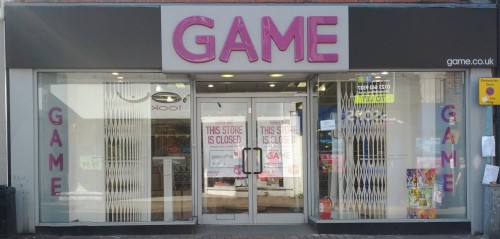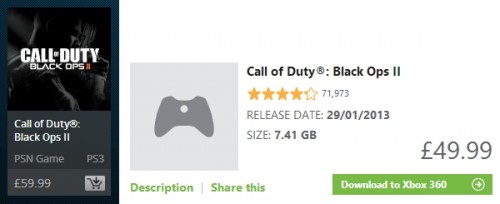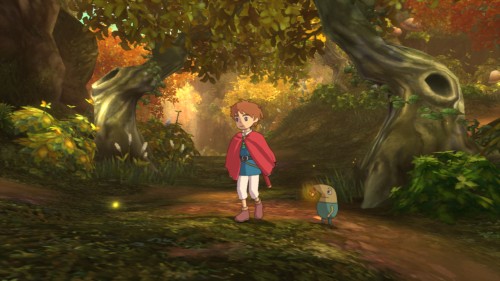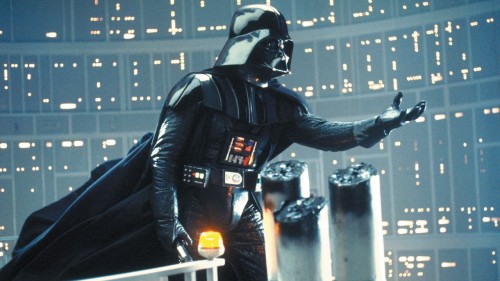So in all likelihood we’ll be looking at the first of the next-gen consoles by tomorrow. Sorry, Nintendo, but it’s true.
I’d forgotten how exciting all this can get. There’s news to talk about, specs to argue over, and fanboys getting far too emotionally invested. I expect the usual sieve-like memories as gamers gush over the graphical prowess shown off in CGI trailers and imagine that developers will use this newfound hardware power to make things run at 60 frames per second, only to be disappointed when neither happens. Again.

Now I’m assuming that we’ll get some glimpse of the PlayStation 4 tomorrow. If we don’t, a lot of the media is going to be looking very silly, and the initiative is with Microsoft. I don’t expect that, though. Just like glimpses of The Last Guardian, new hardware announcements have to happen some time, and this generation has gone on quite long enough.
Although I’ve happily played for both sides this generation, it’s clear from my collection – 105 Xbox 360 games to 30 on the PS3 – that the 360 has been my console of choice. Unless the PS3 version of a game has been demonstrably better (Portal 2) or once, as in the case of Dark Souls, out a desire to keep both instalments in a series on the same platform, I’ve plumped for the 360 editions of multiplatform games. Controller preferences, a better online experience and generally superior 360 ports made that an easier approach.
Now that we’re on the verge of a new generation, though, I find myself much more excited about the prospect of the PS4 than whatever Microsoft announces in the next few months.
In the last couple of years I feel like we’ve had a glimpse at what a console landscape dominated by Microsoft would bring. Kinect integration everywhere; dashboard updates whose main function is seemingly to put more adverts into a service you’re already paying for; an increasingly dull first-party line-up that consists of four or five franchises on a rotation you can set your watch by; more and more functionality hidden behind a service that, though good, is increasingly hard to justify for £40/year; restrictions on developers that want to offer free DLC. Word on the street is that, as a rule, Microsoft will only allow DLC to be free when it’s offered as such on rival platforms, and I think that is the best possible evidence of the importance of competition.
At this point in the previous console cycle, Sony was insufferable. The astonishing arrogance that came out of the domination of the PS2 era and culminated in that price tag and a console that wasn’t a complete failure, but was certainly a disappointment based on previous sales performance. That coupled with two consecutive tonkings in the handheld space give me the feeling that Sony has learnt some humility.
The talk is that the PS4 is built on familiar architecture, not the powerful but esoteric nightmare that was the PS3. It sounds like it’s built to be straightforward to develop for, rather than as a vanity project for Sony’s hardware labs. That hardware allowed for spectacular first-party productions but meant multiformat development still suffers next to other versions of the same games. This time, if the rumours are correct, platform parity is much more likely, and we can still count on the talent of Sony’s affiliates to push boundaries more than I suspect we will from Microsoft’s, who have been gutted over the years while Sony’s have expanded.
Take these things on board, and improve the user experience of the PS4 – no important functionality sloppily implemented at a later date (trophies) or not at all (cross-game chat), no mandatory installations, and no downloads that lock you out of doing anything while they unpack – and I feel like Sony has a good chance of rising back to the top this generation. It was quite rightly chastised last gen, and in a climate where conventional gaming has more competition than ever for people’s entertainment time, a resurgent Sony, focused on producing a fantastic, powerful games console above all else, is a very good thing.




